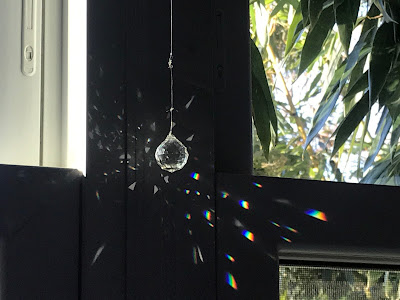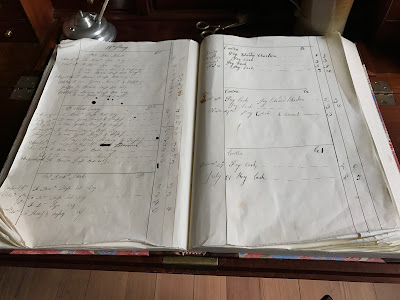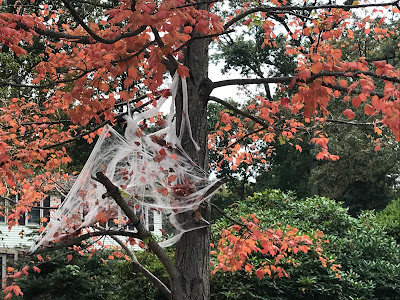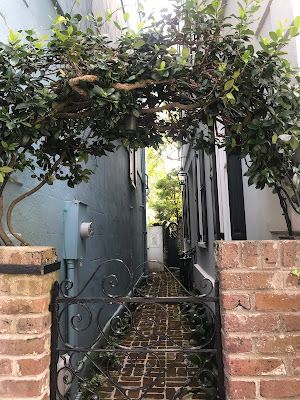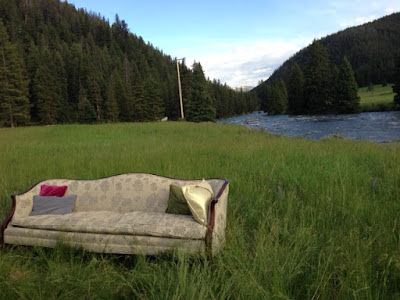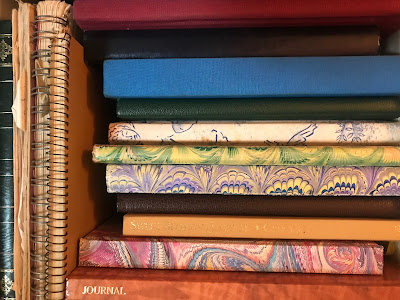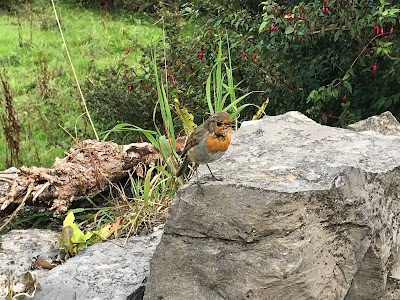Blanker Canvas
I’ve removed the standing desk from my office, a large black metal contraption that sat atop the scarred apple-green desktop. The standing desk was helpful when I spent more hours sitting. Now I’m free to jump up and down scores of times a day — and I do so, probably more often that I should.
But that’s another matter.
What I wanted to mention today is the geography of my workspace, how the terrain has changed. A vast, flat expanse has emerged now that I’ve removed the two-tiered standing desk. And with it gone, I realized I could shift the desk lamp from the far corner to the exact midpoint of the surface, between the windows, so as not to block the view of trees and sky.
It’s a blanker canvas. A more open vista. It suits me now.
(The prism that hangs between the windows makes rainbows on the walls.)
